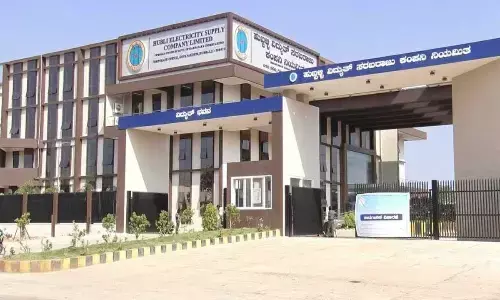Autonomy comes with many riders
Autonomy comes with many riders, Chukka Ramaiah, Responsibility and accountability. The term autonomy brings to our mind a sense of independence and freedom; nevertheless, freedom comes along with a lot of responsibility and accountability.
The term autonomy brings to our mind a sense of independence and freedom; nevertheless, freedom comes along with a lot of responsibility and accountability. “We are all born free but in chains,” said Rousseau. If we consider the term autonomy that suggests freedom, then what is this autonomy granted to Colleges and Universities which we say is for development and progress? It is meant to bring about changes as and when needed being sensitive to the socio-cultural situation or being attentive to the pulse of the stakeholder and finally to be free from rigid red tape and unconventional methods. Autonomy indeed enables promotion of academic freedom in autonomous colleges by encouraging introduction of innovative academic programmes, and facilitates the introduction of new courses of study. These can be done considering the general objectives of autonomy and the specific objectives of the educational institutions in tandem. Now-a-days students often seek admission without ensuring the credentials of the institution and at times are not aware of the objectives and prospects of the courses they choose.
The word autonomy is from the Greek root: auto- ‘self’ + nomos, ‘law’, hence when combined it means “one who gives oneself their own law” therefore the word self governance is better applicable. Let us not equate autonomy with freedom. According to UGC, “Colleges with academic and operative freedom are doing better and have more credibility”. Is there a narrowing down of perspectives? What is happening to governance, accountability and fulfillment of the objectives of an educational institution? Self-governance in an academic institution can be at three levels: academic, administrative (operative) and financial.
In an institution all these aspects work in coordination with one another, they are facets of a same unit. If UGC is considering only academic and operative autonomy and calling it freedom it is at the cost of effective fulfillment of objectives. Educational institutions are no longer the ‘gurukuls’ where the Guru used to be the ultimate and often the severity of learning filtered away many an enthusiast. While granting autonomy to institutions utmost care and caution is necessary. Rules and regulations formulated by the institutions need to be approved by a competent regulatory body. UGC monitors the Universities and Universities in turn supervise the modalities for the sanctioning and functioning of Colleges. Universities, as institutes of higher learning, are autonomous bodies that design their courses, constitute statutory bodies and periodically update methods and means to fulfill set objectives, are yet monitored by regulatory bodies. Similarly autonomous colleges do not mean freedom.
If it is intended to give autonomous status to colleges it is necessary to clearly define roles and responsibilities of the college concerned, the university it is affiliated to and the state/central authorities. In this process overlapping areas are not autonomous and this togetherness enables cross checks.
If autonomy is considered in narrow terms as freedom there is fear of academic dilution and duplication of testing and evaluation procedures. If not a common, at least a standard mode of testing and evaluation is mandatory in this world of ruthless competition.
If on the one hand selection of teachers based on NET/SLET is acceptable, freedom on the other hand in selection procedures and service contracts contradicts the very spirit of eligibility criteria. To maintain high standards of learning stringent staff training and orientation programmes need to be in place. Periodic appraisal and assessment of the teachers cannot be completely decentralised.
Considering the intake of teachers at various levels, inducting expertise for new areas of study and expansion of infrastructure to accommodate new courses necessitates substantial financial support. Institutions that cater to learners from backward areas, learners who are unable to pay for additional new courses, require greater financial support. In the name of freedom are we creating islands of institutions? Can there be a few common high value infrastructural facilities provided by the University to at least a cluster of colleges (hitherto called affiliated)?
Is our motto ‘education for all’ or ‘higher education for all’? Is it a stable cone resting on its base or an inverted cone resting on its tip to tumble any time?
College education, in either of the situations, rests on the basic learning that takes place at the school level and prepares learners to move towards higher education. Autonomy or not, providing skills (study and job-oriented) is the primary objective of a College. If objectives and prospects of various courses and vision & mission of the educational institution are not spelled out clearly, administrative procedures are not laid out methodically, state/centre regulatory bodies are not objective in their approach, the institutions are not monitored periodically by competent authorities, and above all funding agencies don’t understand the growing need of the ever expanding commitments of an institution, autonomy cannot work in totality.
Autonomy comes with many riders. Therefore, hasty decisions can lead to disorder and disillusionment among learners, teachers and stakeholders.
University colleges and affiliated colleges which have established their credibility in serving the society may not have all the freedom to modernise the syllabi. Reforms in evaluation and assessment are not possible. These colleges have expert faculty, good infrastructure and active in R& D activities.
Universities and State Government encourage such colleges to acquire autonomous status from UGC. Colleges having 10 years of existence with permanent affiliation, having 2 (f) & 12 (B) of UGC, existing programmes accredited are eligible to obtain autonomous status by undergoing rigorous inspection and evaluation. By obtaining autonomous status, college will have academic and operative freedom to;
• Formulate its own course structure and syllabi.
• Restructuring and redesigning the course content to meet the changing trends.
• Evolve improved methods of assessment and examination system.
• Introduce innovative programmes and projects.
• Maintain academic relationships with other universities and institutions
• Involve expertise from industry, alumni, specialists etc., in statutory bodies of the college like board of studies, academic senate and governing body to receive wide variety of guidance.
• Improve quality of teachers.
• To receive funds from other organisations for R & D etc
As an affiliated college, it is normally not possible to achieve the above objectives. However, the functioning of autonomous colleges is not authoritative. The autonomous colleges will have representation of parent University, State Government and UGC in all its statutory bodies of the college. University and UGC will review annually the achievements made by colleges, to ensure that the purpose of granting autonomy is met.
Government of India has been encouraging the colleges to attain autonomy towards improvement of higher education
• Teachers of the college will have direct role in designing course structure and syllabi
• Teachers will set question papers and value the answer books. This will give them knowledge about the
performance of their own students, which is required for any teacher.
• Students of autonomous college will get examination results quicker than the time normally taken by affiliating university.
• Continuous evaluation is possible in autonomous structure.
(The writer is noted










